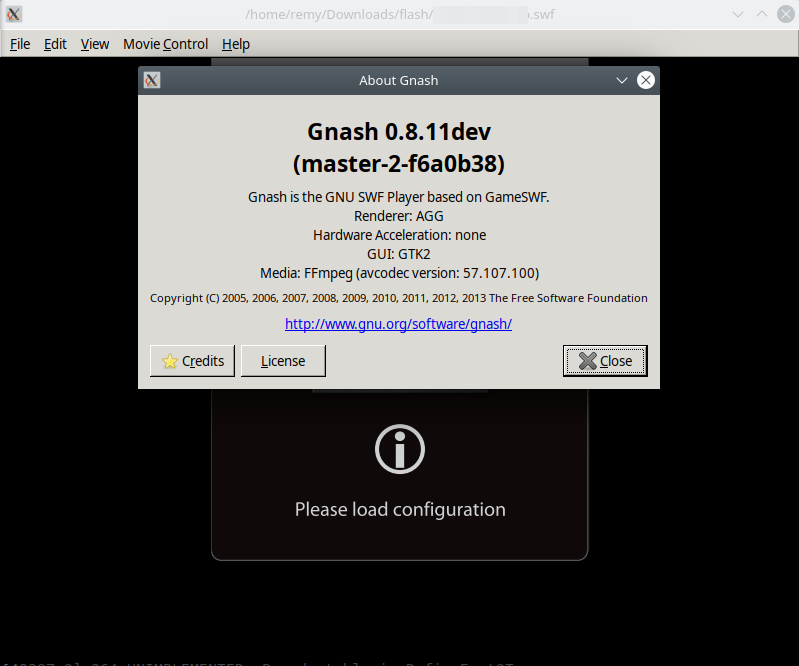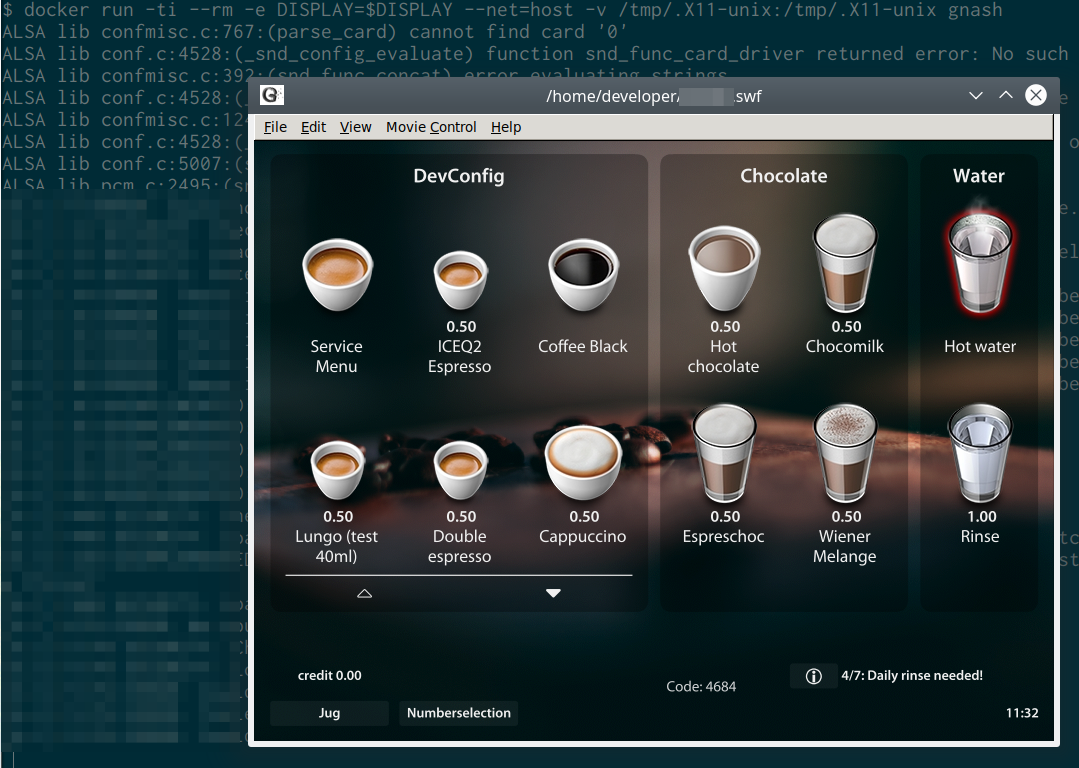Raymii.org

אֶשָּׂא עֵינַי אֶל־הֶהָרִים מֵאַיִן יָבֹא עֶזְרִֽי׃Home | About | All pages | Cluster Status | RSS Feed
I've packaged up Gnash as a snap, for modern linux
Published: 07-12-2020 | Last update: 15-05-2021 | Author: Remy van Elst | Text only version of this article
❗ This post is over four years old. It may no longer be up to date. Opinions may have changed.
Table of Contents
Last week I did something unexpected, I packaged up Gnash as a snap.
Gnash is a GNU flash media player, not updated since 2011, and thus removed
from the Ubuntu 20.04 repositories. The snap packaging is based on work by
phil roche, he wrote about re-packaging older debian packages with an
Ubuntu 18.04/16.04 base layer as a snap. My gnash package is confined (no
--classic needed), the source code for the snap is on my github and on
any snap-enabled distro you can now snap install gnash-raymii to enjoy Gnash
again.
As the code is up on github and Phil has his code up as well, you should be able to easily re-package deb's as snaps as well. Pygopherd comes to mind, but any package from the Ubuntu repositories you might need fits the bill, search/replace gnash, test the confinement options and you're done.
Here is a screenshot of Gnash running as a snap:

Update: 15-05-2021
I've updated the gnash snap package on user request to include a few
extra commands, namely dump-gnash, cygnal, rtmpget, gprocessor
flvdumper and soldumper. The main package is now also named
gnash-raymii, so you'll no longer need to use the command gnash-raymii.gnash,
you can just use gnash-raymii. Although the former is kept around for
scripting.
As the snap store tells me, this snap has almost 1500 active installs, way more than I ever expected. Happy to see that people actually still use gnash.
Why re-package gnash as a snap?
As you might know, [I sincerely dislike snap][1] and I actively avoid using it. However, a few co-workers do run Ubuntu and were fiddling around with my docker gnash guide, didn't get it to work and asked me for help. As I recently read Phil's article and this was a good way to put that into practice. As Gnash is no longer under active development for almost a decade, it is not in the Debian/Ubuntu repositories anymore, thus hard to install. But, Ubuntu 18.04 was the last release to have it in its repositories, so just as with the Docker guide, I used that as a base. Compiling gnash by hand is hard due to outdated dependencies (looking at you gstreamer).
I might dislike snaps, as with most of my work I'm pragmatic enough to use whatever task suits the current situation best, and for this problem snaps were a good fit. Saves my current and future co-workers a bunch of time.
Why run gnash?
Some of my work depends on gnash, although it's actively being replaced with QT. Gnash in our case runs on the framebuffer of an embedded device, no network connectivity, no external input, so almost no risk.
For development and testing we sometimes need to run gnash on my workstation with an SSH port forward to a development board. We can then locally interact with the UI. Also, the development board does not require a screen, which saves time and space in the development setup.
We don't want the coffee machines to end up as e-waste in a few years, expected lifetime with regular maintenance is at least a decade, I suspect we'll use Gnash for just as long. All of our new machines use QT, but the older ones still get support and waranty.
Here is gnash running the coffee machine user interface:

